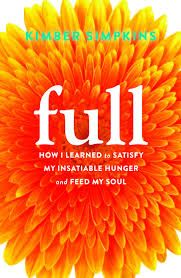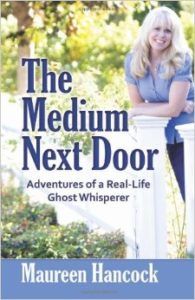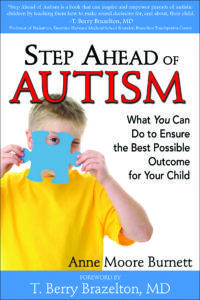 Have you ever wondered how to get a book deal in this increasingly competitive environment? Certainly, there are the actual steps to take, including writing a top notch book proposal and growing your author platform.
Have you ever wondered how to get a book deal in this increasingly competitive environment? Certainly, there are the actual steps to take, including writing a top notch book proposal and growing your author platform.
Yet, there’s another side to getting a book deal—and that’s the grit. How do you stick with it? How do you complete all the steps to get there—sometimes in the face of disappointment, rejection and even what seems like failure?
Thursday’s Happy Book Deal Story
I received an email last week from a client sharing his good news: he’d just heard from his literary agent with the first offer from a publisher! It was particularly thrilling because things had not been looking so rosy a month ago. In fact, the rejections had been pouring in and he wondered whether he would ever get a book deal at all.
I believe this author’s success in getting a book deal is based largely on several particular qualities of his. Let’s see if you can guess what they are…Without reading ahead, close your eyes and think of a few qualities you believe to be crucial to an author’s success in getting a book deal. Open your eyes and jot ’em down.
Now let’s see if you guessed right! (Or perhaps you’ve identified additional qualities—please share them as a comment below.)
Visionary

When I first met this author, I was intrigued by his book idea, but I wasn’t sure I was the right book proposal coach for him. While intrigued, I wasn’t particularly excited about the subject at first glance.
Yet, when I hesitated during our first phone call, the author convinced me that this book was necessary, groundbreaking and transformational. He shared his vision and I soon shared his enthusiasm—a complete turnaround.
This visionary ability—and the enthusiasm with which he shared his vision—served him time and again in developing his platform, signing a contract with a top literary agent and ultimately in getting a book deal.
Flexible and Coachable

Some folks will tell you why they can’t do xyz, or why building a platform isn’t going to work for them or why their book has to be 750 pages. And they may be right, but it may not be so easy to help them get a book deal with that kind of rigidity.
On the other hand, authors who take each recommendation step by step and figure out a way to do even the uncomfortable, the daunting and the downright terrifying have a better chance of developing the platform and proposal that publishers want to see. Some of those efforts may meet with success while others may miss the mark. Yet, if you’re willing to try a number of challenges, some of them will work.
Maybe you don’t get a commitment from the New York Times bestselling author you’ve identified to write the foreword for your book, but you do get some yeses for endorsements and even a couple of commitments for special sales (or bulk sales) that you can include in your book proposal.
This author took each of my recommendations and, step by step, implemented them, even though he didn’t have a huge budget to implement everything all at once, or the time to initiate all suggestions at once. It took time but slowly, step by step, his platform grew—developing a professional website, blogging for Psychology Today online, tweeting actively, setting up speaking engagements, adding video to his website. When he hit a wall, he came back for advice, listened and took it!
Intuitive and Creative
Now, I’m not saying ignore your intuition and listen only to your book proposal coach! But weigh the advice and check in with your heart. Are you open to what’s possible? Is it truly your intuition speaking or your fear? Only you can answer that one.
If you hit a wall, can you get creative? If you can’t grow your platform one way, or get commitments for presales, are there other, creative ways to accomplish these goals? This author set a number of challenging goals, achieving some and not others. When something didn’t work, he looked for new ways to accomplish a similar goal, creatively.
Persistent

In the same way this author knew he wanted to work with me, he was completely clear about the literary agent he wanted to work with. He contacted her a bit early in the process. She expressed interest and encouraged him to continue to work on his author platform, providing several specific suggestions.
He consistently did the work on his platform and it grew enough that he decided to approach her again. Again, she encouraged him to work on platform, as he still needed to build it. Yet, he felt that to continue to do the work, he needed the motivation of having signed with this agent (there’s that intuition again!). He promised to do the work and asked her to take him on as a client.
Now, this isn’t the advice I generally give a client. Why tie yourself to a particular agent when that agent is clear that you are not yet in the position where she would be ready to pitch your book to publishers? Doesn’t it make sense to wait until you have what she requires? Well, that was my orientation but in this author’s case, his persistence paid off. She signed him as a client, gave him a couple more platform suggestions and he had the emotional boost he’d needed to keep on truckin’—another example of trusting your intuition about what you personally need to be successful in getting a book deal.
Eventually, he felt he’d accomplished what he could on the agent’s list and asked her to pitch the book. She did.
Resilient

Feedback was tough. As I mentioned, the book was groundbreaking. It served a good sized audience that hadn’t really been served by a book specifically for their challenge before.
And, unfortunately, publishers tend to prefer books that compete in an established space. Acquisitions editors wondered whether there truly was an audience for the book. Without having sold products or programs (such as a webinar series) to such an audience, it wasn’t clear whether the intended audience would just look for information in online articles or whether they would actually buy a book to help them resolve this challenge.
And so, initially, no offers came in. One publisher did suggest a different book that they’d be interested in from this expert. And yet, the author felt it would be disappointing to turn his back on the book where his deepest passions resided. He considered the other book, but he didn’t feel quite the same enthusiasm as he did for the first. He hung in there.
Well, you know what happened. Fortunately, he didn’t have to turn his back on the first book because the first offer came in, and then a second offer.
Your Turn
I look forward to the day when I can share more details about this particular book, once the contract is negotiated and signed. Meantime, what takeaways to you have from the story? What insights do you have for qualities you can cultivate in yourself? What’s been serving you in your work in writing your book proposal or book and what qualities or tendencies could you cultivate in order to get a book deal? Share your insights and experiences as a comment below. Thanks!

 Are you at all confused about the order of finding an agent, getting a publisher and sending a book proposal? Do you wonder, “Where do I start?”
Are you at all confused about the order of finding an agent, getting a publisher and sending a book proposal? Do you wonder, “Where do I start?”



